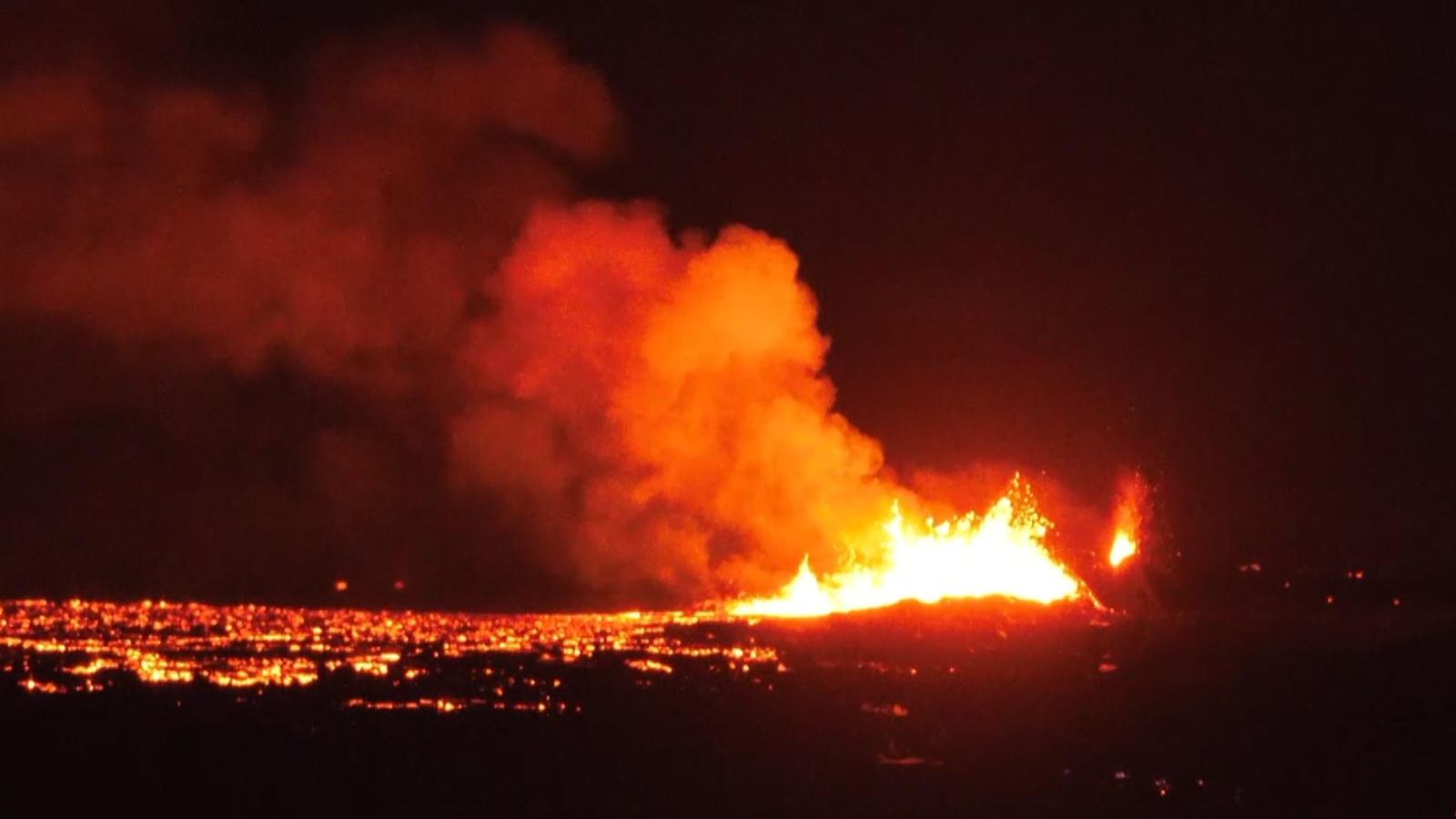It’s eight in the morning and pitch dark as we climb into the Iceland coastguard helicopter. This far north, it won’t be light for hours.
The darkness may make the pilots’ jobs harder – relying on night vision helmets to navigate – but it helps the rest of us.
For as we approach the site of the eruption, all we can make out is faint orange smudges of light.
Just 72 hours ago we would have been flying over a two-mile-long curtain of fire: Lava being forced 40-50 metres into the air by a vast chamber of magma less than a kilometre below the surface.
Only a few hours before we took off, webcams showed a few cones of lava were still sputtering away in the darkness.
But it’s now like looking into the embers of a dying fire.
We come in for a precarious landing on a hilltop next to the lava field, guided by a spotlight to search for even ground.
Watch Iceland volcano live
Iceland volcano: Astonishing footage of spewing lava captured by a drone
Iceland volcano: Their hazard and their beauty are two sides of the same coin
The idea is to give seismologist Dr Kristin Jonsdottir, from Iceland‘s meteorological office, a more stable view of the lava – not that it changes what was obvious from the air.
“It’s a huge surprise the lava activity has stopped,” she tells me, as we peer down at the almost dark lava field.
The activity of the eruption has been slowing, but few expected it to stop so quickly given the initial surge of lava: at one point, equivalent to four times the flow of water down the Thames in London.
But it’s good news for the first responders and emergency planners who it now looks like will get a break for Christmas after all.
Please use Chrome browser for a more accessible video player
It’s also some relief for the 4,000 evacuated residents of Grindavik, who were allowed back to their homes for a few hours today.
Huge cracks appeared in the town last month as rising magma lifted up the ground below. There were concerns it could be consumed by a river of lava.
Read more from Sky News:
At least 15 dead in Prague shooting
All Eurotunnel services temporarily suspended
The eruption stopped a few kilometres away, sparing the town’s power plant and the hugely popular Blue Lagoon hydrothermal spa.
But there’s little prospect of residents being back in their home before Christmas.
Some aren’t sure they even want to return. We met Sigridur Jonasdottir packing up her last remaining possessions.
“I don’t think I’ll come back,” she tells me.
After earthquake damage, seven weeks of evacuation, and the threat of rivers of fire running down the hill into town, she doesn’t believe she’ll be able to stay in her house – or sell it.
The volcano may go silent for centuries once again but for her the future is simply too uncertain.







